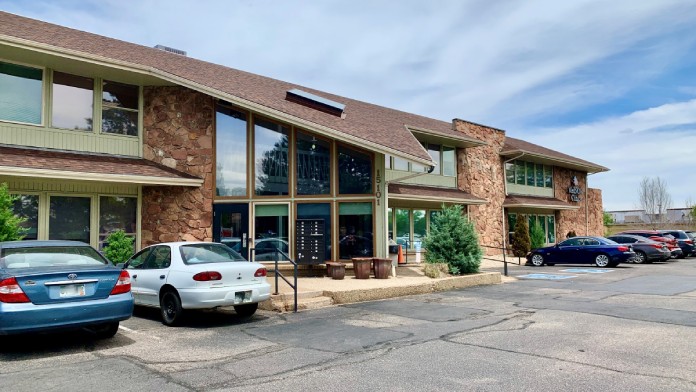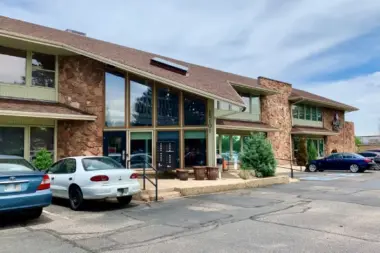About The Coleman Institute
The Coleman Institute in Aurora, Colorado is a treatment center where you can find specialized support for detoxing from opioids and alcohol without having to put your whole life on hold. Their outpatient approach means you can return home each day while getting care that is structured and compassionate. What strikes us most about them is how many past clients have shared that they were finally able to stop using substances after struggling on their own for years.
They take Medicaid, Medicare, military insurance, private insurance, self payments, and offer a sliding fee scale. State financed plans and IHS/Tribal/Urban funding are also accepted. This wide range of options helps make detox and follow up care more accessible to you.
A Unique Approach to Detox
The Coleman Method is a special part of this program. This is a rapid detox option without general anesthesia. You’ll be supported through withdrawal with a team that understands how difficult this step can be and works to keep you as safe and comfortable as possible. We like that they follow detox with aftercare planning and the use of safe non addictive medications like naltrexone to support lasting recovery.
Support Beyond the First Step
Programs are available for adults of all ages including young adults just starting to deal with addiction. Their outpatient model makes it easier to stay connected to family, work, and daily life during treatment. If you’re coming from out of town, there are hotel and short term rental options nearby to make the process easier.
Things to Do After Your Appointment
After your appointments, you might take a walk in one of Aurora’s many parks, explore a local art gallery, or get a delicious meal nearby to take in the day. These small routines can help you process what you’re working through as you reconnect with the world outside of treatment. The area has a mix of nature and culture that gives you room to breathe.
Rehab Score
Gallery


Accepted Insurance
Other Forms of Payment
Self-pay involves paying for treatment out of your own pocket. You can use savings or credit, get a personal loan, or receive help from family and friends to fund your treatment. If you don't have insurance or your insurance plan doesn't cover a specific program, self-pay can help ensure you still get the care you need.
Financial aid can take many forms. Centers may have grants or scholarships available to clients who meet eligibility requirements. Programs that receive SAMHSA grants may have financial aid available for those who need treatment as well. Grants and scholarships can help you pai for treatment without having to repay.
Private insurance refers to any kind of healthcare coverage that isn't from the state or federal government. This includes individual and family plans offered by an employer or purchased from the Insurance Marketplace. Every plan will have different requirements and out of pocket costs so be sure to get the full details before you start treatment.
Addiction Treatments
Levels of Care
Drug and alcohol addiction often takes a heavy toll on one's body. Over time, a physical dependence can develop, meaning the body physiologically needs the substance to function. Detox is the process of removing drugs and/or alcohol from the body, a process that can be lethal if mismanaged. The Coleman Institute offers outpatient rapid detox program to help individuals free themselves from the effects of addiction to Opioids, Suboxone, Methadone and Alcohol.
Completing a drug or alcohol rehab program shouldn't spell the end of substance abuse treatment. Aftercare involves making a sustainable plan for recovery, including ongoing support. This can include sober living arrangements like halfway houses, career counseling, and setting a patient up with community programs like Alcoholics Anonymous (AA) or Narcotics Anonymous (NA). During the detox, they work with patients and their families to develop an appropriate aftercare plan.
Treatments
The goal of treatment for alcoholism is abstinence. Those with poor social support, poor motivation, or psychiatric disorders tend to relapse within a few years of treatment. For these people, success is measured by longer periods of abstinence, reduced use of alcohol, better health, and improved social functioning. Recovery and Maintenance are usually based on 12 step programs and AA meetings.
Professional services are often necessary to recover from addiction. Drug rehab in Colorado provides the expert services needed to address the complex issues of addiction and help individuals start their recovery journey.
Opioid rehabs specialize in supporting those recovering from opioid addiction. They treat those suffering from addiction to illegal opioids like heroin, as well as prescription drugs like oxycodone. These centers typically combine both physical as well as mental and emotional support to help stop addiction. Physical support often includes medical detox and subsequent medical support (including medication), and mental support includes in-depth therapy to address the underlying causes of addiction.
Substance rehabs focus on helping individuals recover from substance abuse, including alcohol and drug addiction (both illegal and prescription drugs). They often include the opportunity to engage in both individual as well as group therapy.
Programs
Adult rehab programs include therapies tailored to each client's specific needs, goals, and recovery progress. They are tailored to the specific challenges adult clients may face, including family and work pressures and commitments. From inpatient and residential treatment to various levels of outpatient services, there are many options available. Some facilities also help adults work through co-occurring conditions, like anxiety, that can accompany addiction.
Young adulthood can be an exciting, yet difficult, time of transition. Individuals in their late teens to mid-20s face unique stressors related to school, jobs, families, and social circles, which can lead to a rise in substance use. Rehab centers with dedicated young adult programs will include activities and amenities that cater to this age group, with an emphasis on specialized counseling, peer socialization, and ongoing aftercare.
Clinical Services
The Coleman Institute is dedicated only to provide detox services. Because their treatment takes only a few days, the patient doesn't need a long break from his/her daily life to complete detox. Staff work with the patient to create a personalized treatment plan that better suit his/her needs and also create and aftercare plan.
Amenities
-
Private Setting
Staff

Peter R. Coleman, MD
Founder

Jennifer Pius Gifford
Executive Director

Jelisa Clanton
Admissions Coordinator

Joseph A. Crowley
Director of Business Development
Contact Information
15101 E. Iliff Avenue
Suite 250
Aurora, CO 80014



